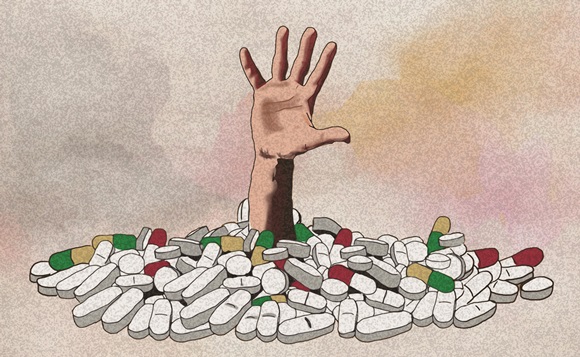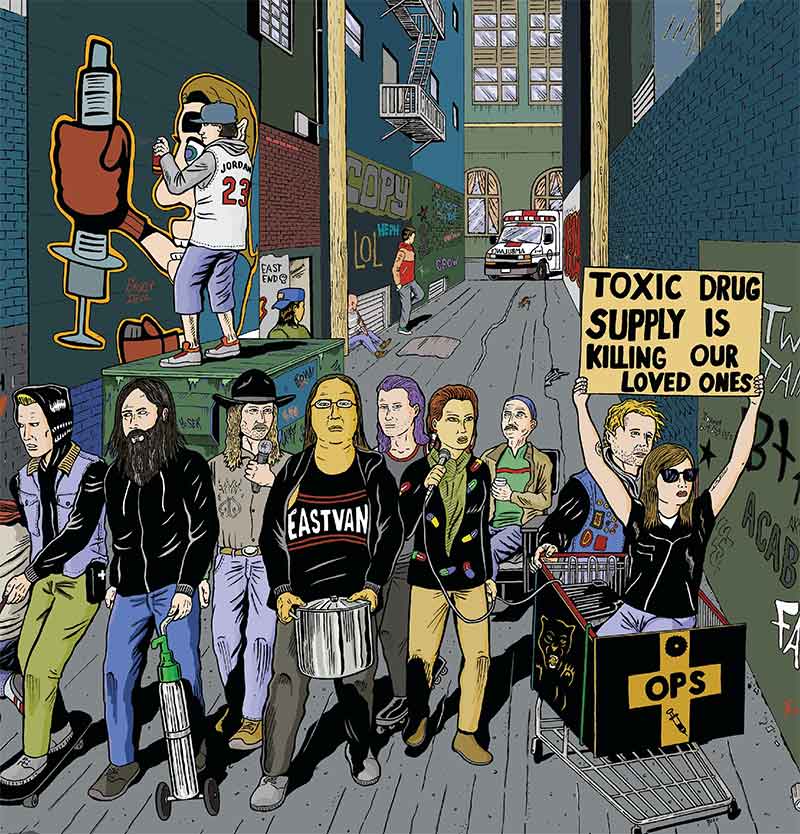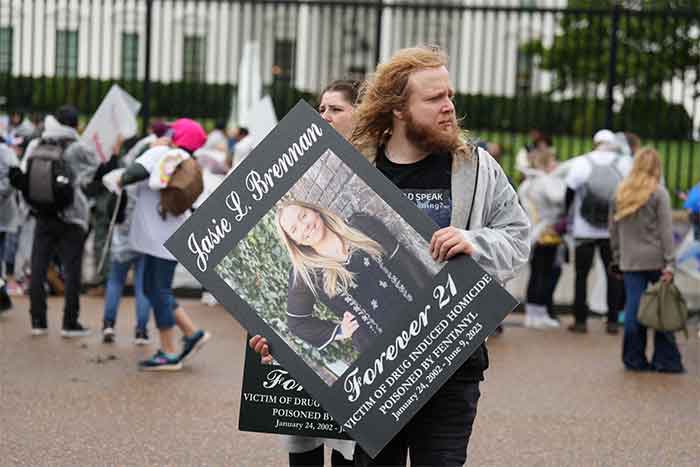
Citing horrific statistics that “An estimated 221 Americans die every day (80,564 in the past 12 months) from an opioid overdose, and an estimated 5.6 million experience an opioid use disorder, affecting individuals, families, and communities across the nation,” the Foundation for Opioid Response Efforts (FORE), a national grant making organization, held a press conference during National Recovery Month titled “New Initiatives to Fight the Opioid and Overdose Crisis Facing America’s Youth.”
FORE is a privately funded national grant making organization that was founded in 2018 to fund specific projects by U.S. nonprofit tax-exempt organizations, universities, state and local governments along with Native American tribal governments. Their grant funding seeks to engage grantees in discovering “creative strategies with and in testing new approaches while enhancing proven ways to prevent and reduce opioid use and overdoses.”
Since its inception they have focused on four specific areas: professional education, payer and provider strategies, policy initiatives and public awareness. FORE funds grants focused on prevention through “innovative solutions and how policymakers, health care providers, parents, caregivers, educators, the court system, all involved in the future of our children, can work together to improve adult-child relationships and family resilience.” As reported here earlier, America’s youth are most affected by the crisis of opioid overdose which is the leading cause of death for those between the ages of 18-45 years of age.
In discussing the ongoing opioid use and overdose crisis, a panel of experts along with two former opioid abusers emphasized education for younger children, youth and families as key to preventing another generation becoming victims.
Dr. Andrea Barthwell, MD, DFASAM, Chair of FORE’s Board of Directors, in her opening comments pointed out that “the market of substances of misuse is subject to demand, is extremely nimble and increasingly poisonous and deadly. A balanced national strategy requires that we explore, implement and integrate innovative solutions” in the prevention and intervention of and treatment for those who are substance abusers.
She continued by announcing two new recent grants: one for Sesame Street Workshop the iconic children’s TV program ($840,000) and a second grant ($500,000) to the American Academy of Pediatrics (AAP) “our nation’s children’s doctors.” The Sesame Street grant would develop programming that introduces the subject of drug abuse and addiction to educate younger audiences.
The AAP grant according to FORE’s website would be used to “Create and disseminate educational tools that enhance the capacity of clinicians to prevent, identify, and treat substance use among adolescents and young adults.” These two new grants bring FORE’s total portfolio of its awards in its five years of existence to 100 for a total of $39 million.
President of FORE, Dr. Karen A. Scott, MD, MPH, related that grants have focused on access and evidence-based treatment for those most at risk by death from overdose. Most important in awarding funding is “the removal of barriers by linking people with care.” Last year FORE began funding 11 family and community-based prevention programs, its largest to date. This new series of grants will focus on children, youth and family including those presently impacted by drug abuse to “change the trajectory of the next generation.”
Jeanette Betancourt, EdD, Senior Vice President for U.S. Social Impact at Sesame Workshop, the nonprofit organization behind Sesame Street described the mission as to “grow all children in making them smarter, stronger and kinder.” In achieving those goals, they utilize “the power of media and research and the power of education and the power of childhood development to really empower the next generation.”
Behind this approach is their philosophy of “The Circle of care…That every adult is a key influencer in young children’s development.” This for children who live in households where their main caregiver is affected by a substance abuse disorder and who have many questions about their circumstances which they may be unable to express, along with not receiving the required nurturing they need in their development which can be especially impactful.
Sesame Street recognizes that “in order to counteract the effects we must begin in early childhood.” In attempting to have a positive influence they have created a special Muppet in utilizing its power to influence young minds and behavior. “Karli” as she is named deals with her mother’s struggle with substance abuse. Kari’s story begins when she enters foster care paralleling that of many children’s experiences in similar circumstances.
Their biggest discovery in research of young children in substance abuse households was “…that they (children) also felt guilty that they were causing their parents’ addiction, as young as three, feeling that it was something they did or that they didn’t behave” causing the parental addiction. Through their use of Kari she related, they are “creating a sense of hope, a sense of awareness and making a difference wholistically.”
While most of the discussion centered on academic research, psychological and medical interventions and the social stigma of substance abuse and its effects, former substance abusers, Lucy Battles and Dwayne Dean, presented their personal struggles with addiction emphasizing the importance of early childhood education.
Battles, in her 12th year of opioid abuse recovery, related as a teenage she abused alcohol and while in college after a dental procedure became addicted to Percocet using it daily for four years. Her addiction eventually turned to homelessness and she resorted to criminal activity until pressured into a treatment program through the courts. She noted that children whose parents have substance abuse problems have an increased chance of doing the same. The “Opioid crisis does not discriminate and affects all communities.” She now works with others and commented that Sesame Street has done an incredible service to children and families around the substance abuse issue.
Dwayne Dean, a 27-year substance abuser now entering his10th year of sobriety, reflected on how the subject of drugs and addiction when he was younger were not an approachable subject with his mother who did not answer his questions. He soon realized that “every child is going to learn in spite” of answers not being forthcoming. Respective to opioid addiction he went on to say that “Our children are begging for bread and they have no one to break it for them. They have questions, we have to help them to understand, cause they are gonna learn even if it’s not from us. We need to guide, direct and feed them.” We must “Have those hard conversations now with our youth because they are curious and they want to know why. We have to change the narrative we have to talk about it (drugs).”
Sesame Street Workshop he related allows for people to discuss these subjects by raising them in their programing which in turn makes it easier for parents to have these conversations with their children. As the now proud father of a two-year-old daughter, he felt confident in having those conversations the program raises in establishing a brighter and drug free future for his child.
In closing, he lamented that not being able to talk about substance abuse in his family he did not know how dangerous drugs were and that it is better to be proactive than reactive.
Phil Pasquini is a freelance journalist and photographer. His reports and photographs appear in the Washington Report on Middle East Affairs, Pakistan Link and Nuze.ink. He is the author of Domes, Arches and Minarets: A History of Islamic-Inspired Buildings in America.
(This article has appeared in Nuzeink)
© 2023 nuzeink all rights reserved worldwide














































